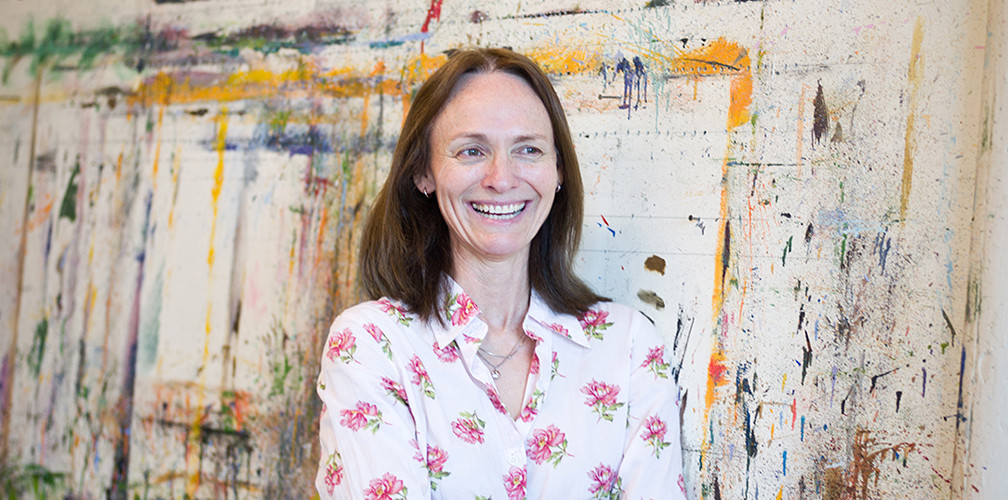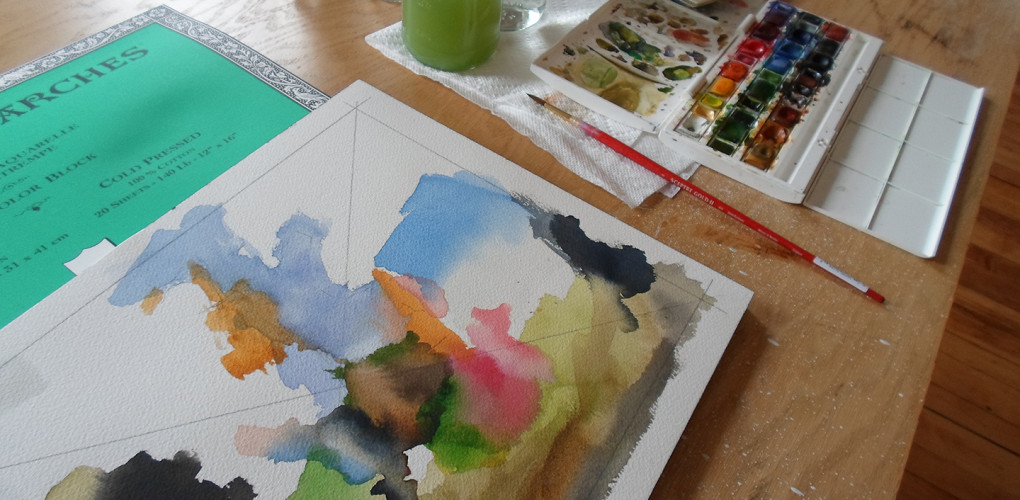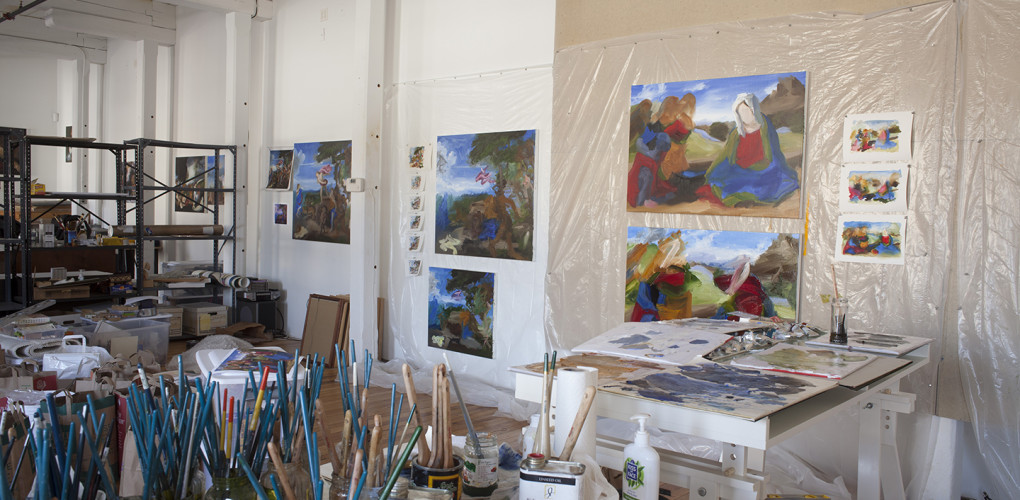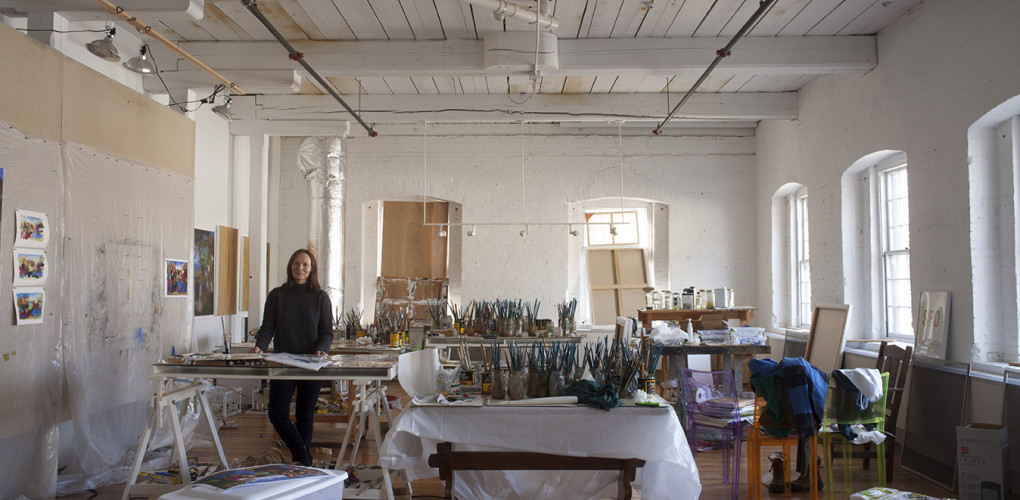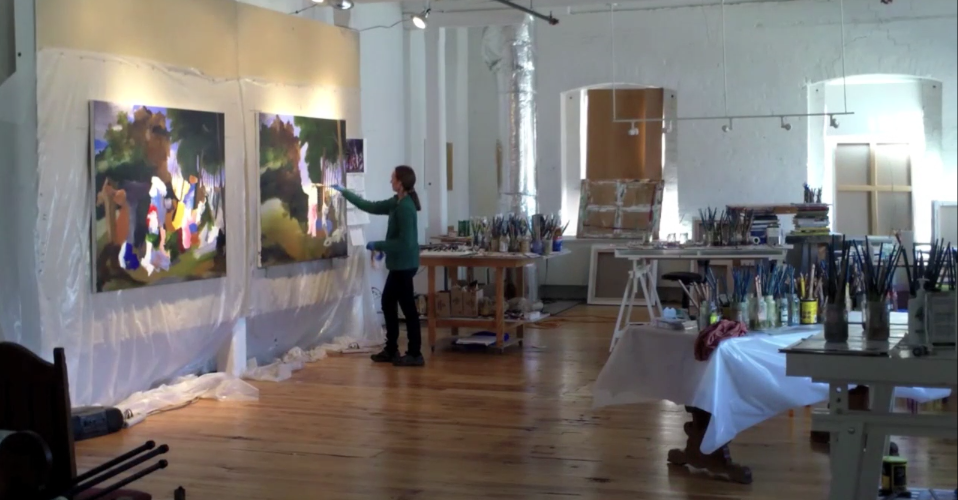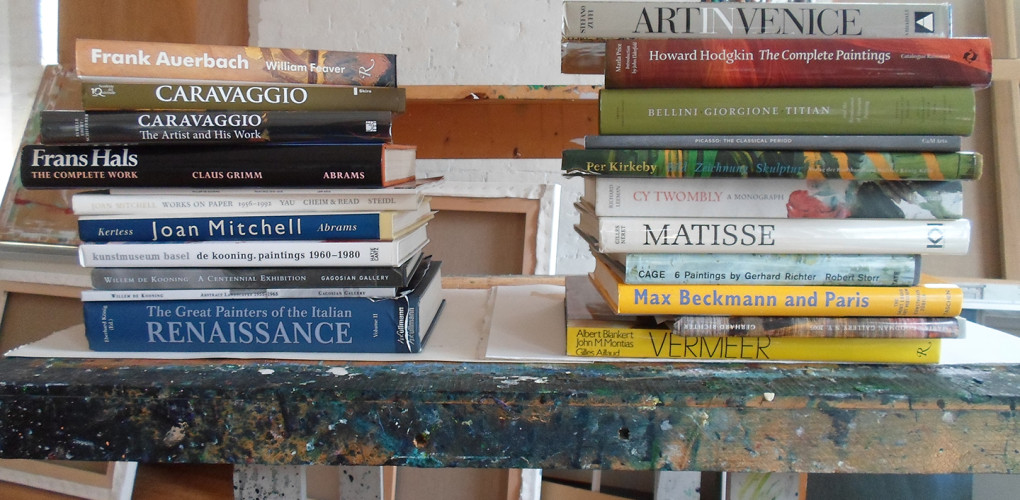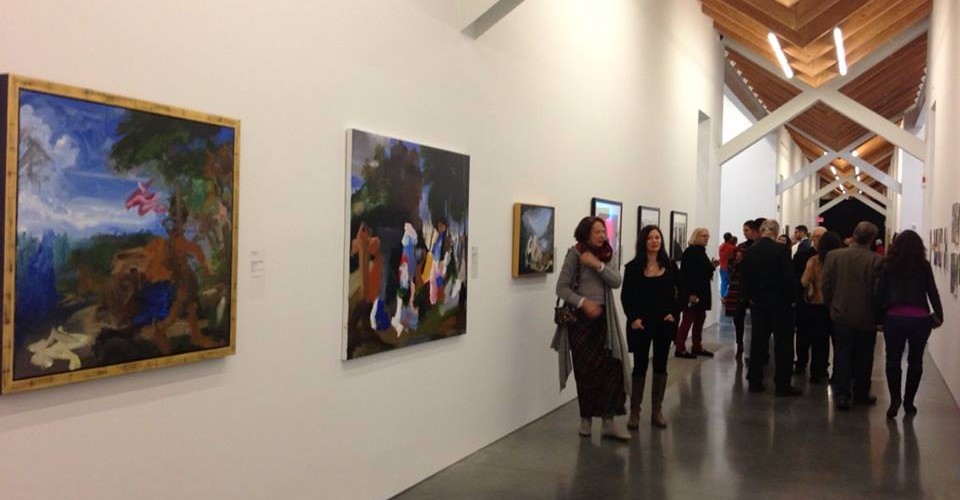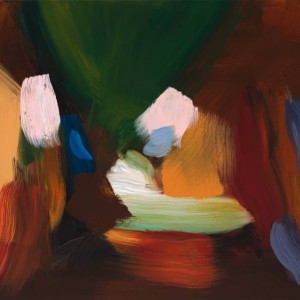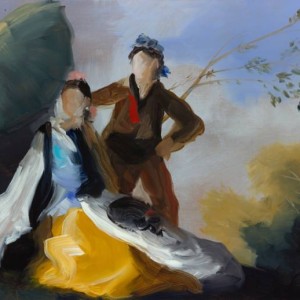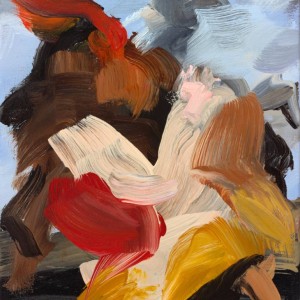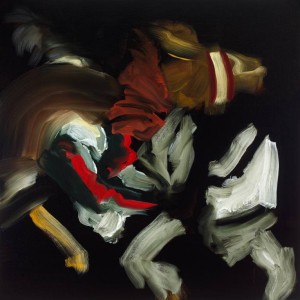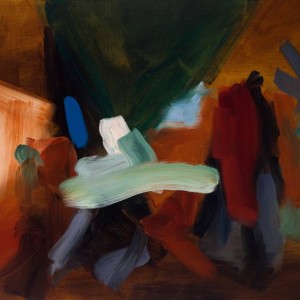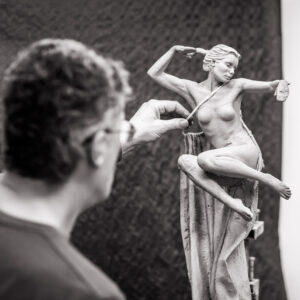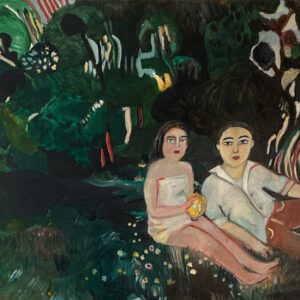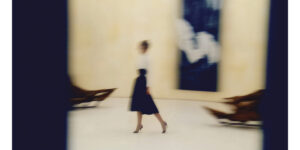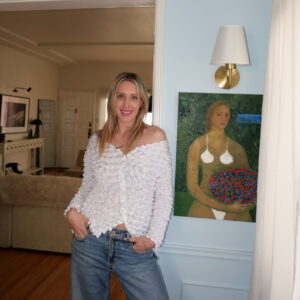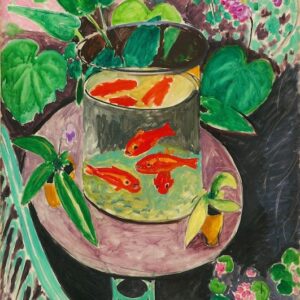Inside the Studio
 Elise Ansel
Elise Ansel
What are the major themes you pursue in your work?
One of the major themes I pursue in my work is the theme of transformation. I make paintings that are derived from Renaissance and Baroque depictions of bacchanals and figures in the landscape. My work is about reclaiming, re-visioning and re-presenting paintings that were created at a time when women were seen as objects rather than primary participants in the creative dialogue. The paintings I work from are distant mirrors which I interpret through the lens of gestural abstraction. I use painterly notation and shorthand to translate historical paintings into a contemporary pictorial language. My method allows me to engage with and pay homage to some of the greatest paintings in the history of western art while at the same time challenging and transforming a sexist visual lexicon.
Another theme I explore is the theme of improvisation. The historical paintings I work from become structures on which to hang paint; the soundness of these structures capacitates great improvisational freedom. The real subject becomes the substance and surface of oil paint, the variety of its applications, and the ways in which it can be used to celebrate life.
What was the best advice given to you as an artist?
I was a studio assistant for John Alexander in NYC in the 80’s; he once said to me “Focus Focus Focus.” That’s turned out to be an excellent piece of advice that I still draw upon today.
Prefer to work with music or in silence?
I love to listen to music and sometimes use it to jumpstart the creative process. Once I’m deeply engaged in painting, silence is fine.
If you could only have one piece of art in your life, what would it be?
Titian’s Pietà, which is currently at the Accademia Museum in Venice.
Who are your favorite writers?
I like Andrew Graham-Dixon very much. I keep his books on Caravaggio and Howard Hodgkins with me in the studio. I also keep William Feaver’s monograph on Frank Auerbach by my painting table. I think Robert Storr is very intelligent, and I enjoy what he has written about both Philip Guston and Gerhard Richter. James Joyce is important to me; Ulysses inspired my current body of work. Other fiction writers I like include Collum McCann, Jennifer Egan, Nicole Krauss, Ian McEwan, Joan Didion, Jane Gardam, Dona Tartt, Ralph Ellison, Mary Caponegro, Michael Ondaatje, and Lily King.
